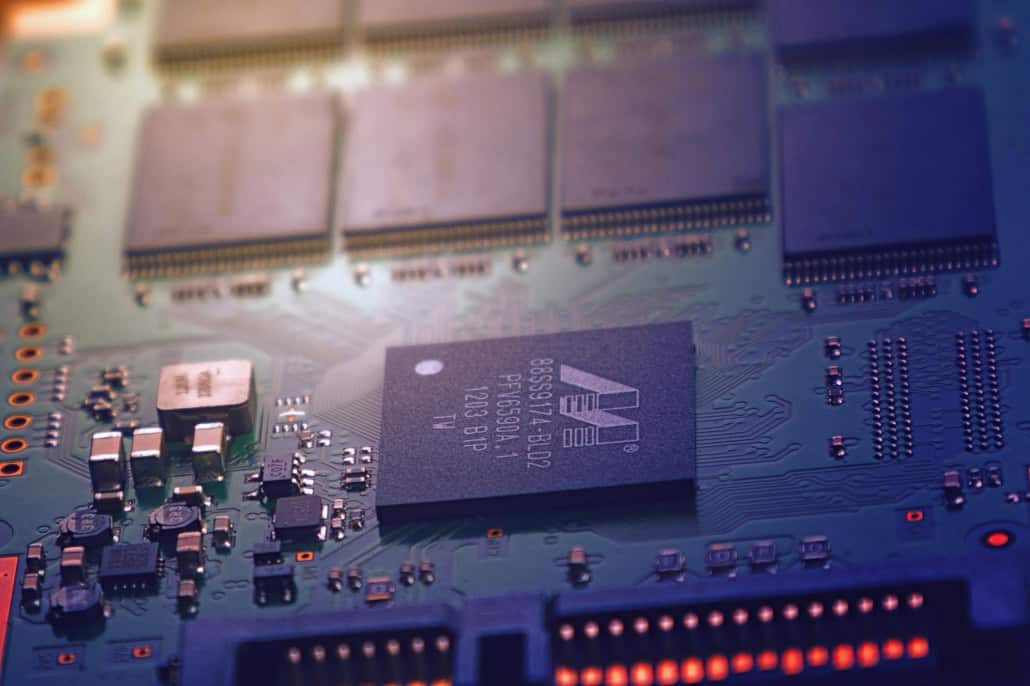Exploring Tokenization in Commercial Real Estate
I have always been interested in developing technology trends, and, in the spirit of exploring future possibilities in our industry, I wanted to discuss a developing trend of tokenization in commercial real estate. If you’re not yet familiar with terms like tokenization, cryptocurrencies, or blockchain, this article will introduce these concepts in a straightforward way, explaining why some believe these technologies, specifically real estate tokenization, will greatly impact on the commercial real estate market.
What Could the Future of Commercial Real Estate Look Like with Tokenization?
Have you ever wondered how the future of real estate investment might look? Some people imagine a future where investing in commercial properties could become as simple as trading stocks, with ownership divided into small, affordable fractions. In this vision, investors from around the globe might seamlessly participate in lucrative real estate opportunities, with all transactions being public, verifiable, and auditable while maintaining strong security standards. Some believe this future could become a reality through the implementation of tokenization, decentralized finance, and blockchain technology.
Proponents suggest that tokenization might increase liquidity and accessibility while enhancing transparency and security, potentially transforming the way commercial properties are invested in and managed. Critics argue that the implementation of tokenization and blockchain technology in real estate may face significant challenges, including regulatory uncertainty, technological complexity, and market resistance. Either way, we’ll look into how real estate tokenization works, the benefits it could potentially offer, and why some view it as a potentially game-changing development in the industry.
Understanding Tokenization
Tokenization is the process of converting rights to an asset into a digital token that can be traded on a blockchain. In general terms, it involves creating a digital representation of an asset, such as real estate, art, or commodities, and issuing tokens that represent fractional ownership of that asset. These tokens can then be bought, sold, or traded on digital platforms.
Real Estate Tokenization
Real estate tokenization refers to the digital transformation of property ownership. Instead of dealing with the entire property as a single, indivisible asset, the property is divided into smaller, tradable units known as tokens. Each token represents a share of the property and entitles the holder to a portion of the income generated by the property, such as rental income or capital appreciation.
How Tokenization Works in Commercial Real Estate
Here’s a simplified breakdown of how it works:
- Creation of Tokens: A property owner or developer decides to tokenize their property. They create digital tokens on a blockchain platform, with each token representing a fraction of the property’s ownership.
- Representation of Ownership: These tokens are essentially digital certificates of ownership. For instance, if a property is divided into 1,000 tokens, owning one token might represent 0.1% of the property’s ownership.
- Trading Tokens: Investors can buy, sell, and trade these tokens on digital marketplaces, much like stocks on a stock exchange. This process allows for fractional ownership and increased liquidity.
The Role of the Blockchain: Beyond Cryptocurrencies, Bitcoin and Speculation
Blockchain technology provides a secure, transparent, and decentralized ledger for recording transactions. Here’s how blockchain supports tokenization:
- Security: Blockchain technology uses cryptographic techniques to secure transactions and ownership records. This makes it nearly impossible for unauthorized parties to alter or tamper with the data.
- Transparency: All transactions recorded on a blockchain are transparent and can be viewed by all participants. This transparency ensures that all token transfers and ownership changes are visible, reducing the risk of fraud and enhancing trust.
- Decentralization: Blockchain operates on a decentralized network of computers, ensuring that no single entity has control over the entire ledger. This decentralization enhances the security and reliability of the system.
Smart Contracts and Decentralized Finance
Smart contracts are self-executing contracts with the terms of the agreement directly written into code. They play a pivotal role in managing real estate transactions within the tokenization framework. Here’s how smart contracts work:
- Automated Transactions: Smart contracts automatically execute transactions when predefined conditions are met. For example, a smart contract can automatically transfer ownership of tokens when payment is received, eliminating the need for intermediaries.
- Enforcement of Rules: Smart contracts can enforce rules and regulations related to property ownership, such as restrictions on who can buy tokens or limits on the number of tokens an individual can own.
- Efficiency: By automating processes and reducing the need for intermediaries, smart contracts streamline transactions, making them faster and more cost-effective.
The Potential Benefits of Real Estate Tokenization
Increased Liquidity
- Traditional Illiquidity: Commercial real estate is typically a highly illiquid asset, meaning it can take a long time to sell or buy property.
- Liquidity Through Tokenization: By tokenizing real estate, ownership is divided into smaller, tradable digital tokens. This allows for easier buying and selling of fractional ownership, significantly increasing liquidity.
Fractional Ownership
- High Entry Barriers: Traditional real estate investment often requires substantial capital, which limits access to high-net-worth individuals or large institutional investors.
- Accessibility: Tokenization allows for fractional ownership, enabling a broader range of investors to participate with smaller amounts of capital. This democratizes access to real estate investments.
Efficiency and Cost Reduction
- Complex Transactions: Traditional real estate transactions can be complex, time-consuming, and expensive due to the involvement of multiple intermediaries such as brokers, lawyers, and banks.
- Streamlined Processes: Tokenization leverages blockchain technology and smart contracts to automate and streamline transactions, reducing the need for intermediaries and lowering transaction costs.
Transparency and Security
- Opaque Processes: Real estate transactions and ownership records can be opaque, leading to issues such as fraud and disputes.
- Blockchain Benefits: Blockchain provides a transparent and immutable ledger for recording transactions, enhancing security, and reducing the risk of fraud. Every transaction is recorded on a decentralized ledger, which is visible to all parties involved.
Global Accessibility
- Local Restrictions: Traditional real estate investments are often restricted by geographical boundaries and local regulations.
- Global Market: Tokenization opens up the possibility for global investment, allowing investors from anywhere in the world to participate in the real estate market.
Diversification Opportunities
- Limited Diversification: High capital requirements typically limit investors to a small number of properties, reducing diversification.
- Enhanced Diversification: With lower entry points, investors can spread their capital across a wider range of properties, enhancing their portfolio diversification and potentially reducing risk.
Innovative Investment Products
- Traditional Investment Models: The real estate market has seen little innovation in investment products over the years.
- New Financial Instruments: Tokenization introduces new financial instruments and investment opportunities, such as real estate-backed tokens, which can be integrated into various investment strategies.
Improved Access to Capital for Property Owners
- Capital Raising Challenges: Property owners often face challenges in raising capital through traditional means such as loans or equity financing.
- Alternative Funding Source: Tokenization provides an alternative method for property owners to raise capital by selling tokens representing fractional ownership of their property.
Fractional Real Estate Investment Platforms
Fractional ownership platforms allow smaller investors to co-own properties. While these platforms share some similarities with tokenization, they differ in legal structure, management, and investment processes.
- Legal Structure: Typically, these platforms set up legal entities such as LLCs or LPs to hold the properties. Investors purchase shares or interests in these entities rather than digital tokens.
- Management: The platform or a hired property management company oversees the management and maintenance of the properties, handling tasks like tenant relations and maintenance.
- Investment Process: Investors can buy into properties listed on the platform, receive proportional shares of rental income, and potentially benefit from property appreciation.
- Exit Strategies: Selling shares in these platforms might require finding another investor within the platform’s network or waiting for the platform to facilitate the sale, which can be less liquid compared to digital token markets.
- Customizable Investment Scope: Tokenization offers the flexibility to fractionalize or tokenize specific portions of a property or project rather than the entire asset. This targeted approach provides several unique advantages compared to traditional fractional investment platforms: Targeted Funding, Selective Investment, enhanced control, Project-Specific Returns.
Case Studies and Examples
Real-World Examples
Aspen Digital Token (Aspen Coin)
- Project Overview: The St. Regis Aspen Resort, a luxury hotel in Colorado, was one of the first major commercial properties to be tokenized. The Aspen Digital Token (also known as Aspen Coin) represents fractional ownership in the resort.
- Process: The property was valued and divided into digital tokens, which were sold to investors. Each token represents a share in the hotel’s ownership and entitles holders to a portion of the income generated by the property.
- Platform: The tokens were issued on the Indiegogo platform and later traded on a regulated exchange.
- Outcome: This project showcased how tokenization could democratize access to high-value real estate, allowing smaller investors to participate in luxury property ownership. The project also demonstrated the efficiency and transparency benefits of using blockchain technology.
BrickMark’s Bahnhofstrasse 52
- Project Overview: BrickMark, a Swiss-based real estate company, tokenized a prime commercial property located on Bahnhofstrasse, Zurich’s main shopping street.
- Process: The property was valued at CHF 130 million (approximately USD 138 million) and tokenized using blockchain technology. Investors could purchase tokens representing fractional ownership of the property.
- Platform: The tokens were issued on the Ethereum blockchain, ensuring secure and transparent transactions.
- Outcome: This project highlighted the potential of tokenization to attract international investors and provide liquidity in the commercial real estate market. It also showcased the ability to trade tokens on secondary markets, enhancing liquidity.
Some more examples of real estate tokenization
- Commercial Real Estate Development: A developer is constructing a mixed-use building with residential, office, and retail components. They can tokenize each component separately, allowing investors to choose which segment they want to invest in, based on their preference for residential, commercial, or retail real estate.
- Property Renovation: An owner of a historic building wants to renovate only the top two floors into luxury apartments. By tokenizing just the renovation project, they can attract investors specifically interested in high-end residential real estate, without involving the entire property.
- Infrastructure Upgrades: A shopping mall owner needs to upgrade their parking facility. By tokenizing the parking lot project, they can secure funds from investors who are particularly interested in infrastructure improvements, thereby isolating this investment from the rest of the property’s operational aspects.
Challenges and Risks
Regulatory Issues
1. Regulatory Uncertainty
The regulatory landscape for tokenized real estate is still evolving. Different countries and jurisdictions have varying regulations regarding securities, real estate, and digital assets.
Companies need to work closely with legal experts to navigate the regulatory environment. Compliance with securities laws, anti-money laundering (AML) regulations, and know-your-customer (KYC) requirements is essential. Some projects seek regulatory approval or operate within regulatory sandboxes to test their models under the supervision of regulatory bodies.
2. Securities Classification
Tokens representing fractional ownership in real estate are often classified as securities. This classification subjects them to stringent securities laws and regulations.
Issuers must ensure that their token offerings comply with securities regulations, which may include registering the tokens with securities regulators, conducting thorough due diligence, and providing transparent disclosures to investors.
3. Cross-Border Regulations
Tokenized real estate investments can attract international investors, leading to challenges in complying with multiple regulatory frameworks across different jurisdictions.
Companies should establish clear policies for cross-border transactions and seek legal advice to ensure compliance with international regulations. Partnering with local entities in different regions can also help navigate local regulatory environments.
4. Resistance from Traditional Investors
Traditional investors and stakeholders in the real estate market may be skeptical about the adoption of tokenization due to unfamiliarity with blockchain technology and digital assets.
Education and awareness campaigns are crucial to overcoming skepticism. Demonstrating successful case studies, providing clear explanations of the benefits, and showcasing the security and transparency of blockchain technology can help build trust among traditional investors.
5. Institutional Hesitation
Institutional investors may be hesitant to adopt tokenized real estate due to concerns about regulatory compliance, liquidity, and the maturity of the technology.
Engaging with institutional investors to understand their concerns and addressing them through tailored solutions, such as ensuring regulatory compliance and providing robust liquidity mechanisms, can facilitate greater acceptance.
6. Market Infrastructure
The infrastructure for trading tokenized real estate assets is still developing. Limited trading platforms and secondary markets can hinder liquidity and market acceptance.
Developing and partnering with regulated exchanges and trading platforms dedicated to tokenized assets can enhance liquidity and market infrastructure. Encouraging the growth of a robust ecosystem for tokenized real estate will also support market acceptance.
7. Security Concerns
Blockchain technology, while secure, is not immune to cyberattacks. Hacks, fraud, and technical vulnerabilities can pose significant risks to tokenized real estate projects.
Implementing robust security measures, such as multi-factor authentication, encryption, and regular security audits, is essential. Collaborating with cybersecurity experts and adhering to best practices in blockchain security can mitigate risks.
8. Smart Contract Risks
Smart contracts are self-executing contracts with code that runs on the blockchain. Bugs or vulnerabilities in smart contracts can lead to financial losses and operational issues.
Conducting thorough code audits, employing formal verification methods, and engaging with experienced blockchain developers can minimize the risk of smart contract vulnerabilities. Regular updates and improvements to smart contracts can also enhance their security and functionality.
9. Technological Complexity
The complexity of blockchain technology and the technical knowledge required to participate in tokenized real estate investments can be a barrier for some investors.
Providing user-friendly platforms, clear guidance, and educational resources can help investors navigate the technological aspects of tokenized real estate. Simplifying the investment process and offering customer support can also improve the user experience.
Conclusion
Some people believe that real estate tokenization could significantly impact the industry by enhancing efficiency, transparency, and accessibility. As the industry evolves, tokenization may play a key role in shaping the future of real estate investment. This shift will enhance efficiency, transparency, and accessibility, reducing transaction costs and fostering a more inclusive market. Technological advances, such as layer-2 solutions and cross-chain interoperability, along with clearer regulatory frameworks, will support the growth of the tokenized real estate ecosystem. Improved investor protection and integration with traditional financial systems will further bolster confidence and participation. As the industry evolves, tokenization will significantly shape the future of real estate investment, offering new opportunities and challenges for all stakeholders.
I encourage our reader to stay informed about the latest developments in real estate tokenization and consider how this transformative technology could impact your investments or studies. Whether you are a seasoned investor, a student, or a financial analyst, understanding real estate tokenization can provide valuable insights into the future of real estate investment.
Additional Resources
- Tokenized Real Estate: The Future of Property Investment by Forbes
- Gold, real estate and more: Legal infrastructure for real-world asset tokenization industry by Cointelegraph.
- How Blockchain Will Change Construction by Harvard Business Review
- Inside the Real Estate Metaverse and the World of Cryptocurrencies by CBRE Hong Kong.
Frequently Asked Questions about Tokenization in Commercial Real Estate
What is real estate tokenization?
Real estate tokenization is “the digital transformation of property ownership” by dividing a property into “smaller, tradable units known as tokens,” each representing a share of ownership and potentially entitling holders to rental income or appreciation.
How does tokenization increase liquidity in real estate?
Tokenization allows for “easier buying and selling of fractional ownership,” making commercial real estate—normally a highly illiquid asset—“significantly” more liquid through digital trading platforms.
What role does blockchain play in tokenization?
Blockchain provides a “secure, transparent, and decentralized ledger” for transactions. It ensures “security, transparency, and decentralization,” making fraud more difficult and ownership easier to track and verify.
What are smart contracts and how are they used?
Smart contracts are “self-executing contracts with the terms of the agreement directly written into code.” They automate transactions, enforce ownership rules, and reduce the need for intermediaries, streamlining the investment process.
What are the major benefits of tokenized real estate?
Benefits include “increased liquidity,” “fractional ownership,” “reduced costs,” “greater transparency,” “global accessibility,” “enhanced diversification,” and “improved access to capital” for property owners.
How is tokenization different from traditional fractional ownership platforms?
Traditional platforms use legal entities like LLCs, while tokenization issues “digital tokens” on a blockchain. Tokenization offers “greater liquidity, transparency, and customization” by allowing fractionalization of specific portions of an asset.
Can you give real-world examples of real estate tokenization?
Yes. Notable cases include the “Aspen Coin” representing ownership in the St. Regis Aspen Resort and BrickMark’s tokenization of a commercial property on Zurich’s Bahnhofstrasse—both used blockchain to enable fractional, international investment.
What are some challenges facing tokenized real estate?
Challenges include “regulatory uncertainty,” “securities classification,” “cross-border regulations,” “institutional hesitation,” “technical complexity,” and “security and smart contract risks.”
What future trends could support tokenization growth?
Trends include “layer-2 solutions,” “cross-chain interoperability,” and clearer regulatory frameworks. These can enhance security, reduce transaction costs, and support wider adoption of tokenized real estate platforms.











